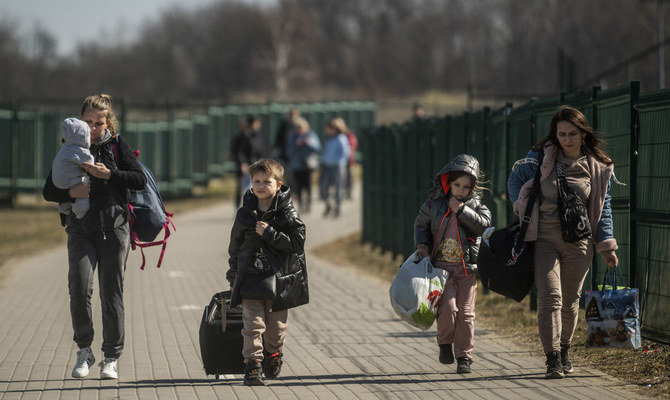
The wave of violence that gripped France for more than a week following the police shooting of Nahel Merzouk, a 17-year-old of North African descent, has sparked yet another virulent debate on migration. Right-wing and far-right politicians across Europe are blaming the violence on migrants and calling for an overhaul of “lax” migration laws, which allow “millions of troublemaking migrants” with “alien cultures and values” to “invade” the continent.
Coincidentally and entirely unrelated to the violence, the French government has drawn up a draft bill on immigration reform, which was presented to the French Cabinet in February. Predictably, there have been calls to thoroughly review the bill and curb future migration. The right deems that the bill, which aims to regulate the migration of skilled workers, will open the doors wide for all kinds of migrants, while the left cites the tightened deportation norms as going against the basic tenets of French values.
Although the recent violence remained largely limited to France, conservatives across Europe have jumped on the opportunity it presented to trash migrants — especially Muslim migrants — and blame them for the violence.
Far-right politicians across the continent have seized on the civil unrest in France to demand that the EU toughen its migration policy. The bloc last month approved a mandatory quota system for migrants and asylum seekers, with countries that refuse to receive any refugees needing to pay so that they can be accommodated in other states. Polish Prime Minister Mateusz Morawiecki rejected the proposed new rules, which were backed by a majority but were opposed by Hungary and Poland at a summit of EU leaders.
Morawiecki is hardly the sole EU politician calling for the bloc to shut its doors even more tightly. There have been similar calls made across Europe, notably in Italy, Hungary, Spain, Sweden and Belgium.
Practically, all those calling for harsher immigration laws on the basis of the violence in France have conveniently ignored that France has witnessed several rounds of violent clashes between the authorities and a sizable section of society over what is perceived to be the high-handed approach of the president toward the French people.
In March, Britain’s King Charles was forced to call off his first international visit as the head of the British monarchy due to violence resulting from the president’s highly unpopular pension reforms. The conservatives may also want to remember the months-long violent protests by the “Yellow Vests,” who brought the entire country to its knees for weeks as they protested Macron’s policies that seemingly favored the rich over the poor, especially those in semi-urban and rural France.
In both of these and many other protests, the protesters were mainly ordinary people who have been citizens of France for decades, if not longer, rather than some newly arrived refugees or illegal immigrants.
Conservatives across Europe have jumped on the opportunity the violence in France presented to trash migrants.
Ranvir Nayar
But politicking apart, European leaders know — or at least ought to acknowledge — that, instead of closing the doors of Europe to a broad segment of migrants, they need to urgently not just open their doors wider but also make their nations more welcoming and attractive for migrants.
Europe has been facing a severe shortage of workers for many years. Countries’ rapidly aging populations have left far fewer working age people than retirees. And some nations, notably Poland, Italy and Hungary, have actually seen a decline in their population. With birth rates falling across the continent, the situation is likely to be similar in most other member countries.
Alarm bells over worker shortages have been ringing for many years, but the situation has become critical, at least in some sectors, since the COVID-19 pandemic, which saw working populations shrink dramatically as millions decided to opt for early retirement. Meanwhile, millions of others, notably long-term migrants, moved back to their home countries, leaving tens of millions of positions empty across the entire spectrum of the developed countries’ economies.
Many sectors are feeling the pinch, notably hospitality, healthcare, transport, agriculture and construction, as the locals prefer to stay away from work rather than do so-called menial jobs. Many reports suggest that the hospitality sector, for instance, has more than 5 million positions that have remained unfilled since the end of pandemic-induced lockdowns. Similarly, farmers across Europe have been complaining that they can no longer find enough seasonal workers, even after offering greater remuneration.
There is hardly a sector that has remained untouched by this crisis and, while automation and artificial intelligence can help ease the shortage in some sectors, like agriculture, banking or manufacturing, in many others, especially healthcare and hospitality, humans are unlikely to be replaced by machines or software any time soon.
Thus, instead of cutting their nose off to spite their face, European politicians should rapidly revisit their opposition to migration and find other solutions to allow in a greater number of people — and not just well-educated ones — since their economies need all kinds of positions to be filled.
Another reason why they should open their doors is related to human values. Over the past decade, Europe has seen large numbers of deaths as migrants try to cross the Mediterranean Sea on dilapidated boats. Human rights organizations have accused Europe of turning a blind eye to the thousands of deaths at its doorstep, allowing women, children and men to perish in the seas, and even going so far as stopping groups from mounting rescue operations. Saving lives on the high seas is not just a humanitarian gesture but also an obligation under several international treaties, which the European nations signed decades ago. It is time European leaders were held accountable for their actions, or even the lack thereof.
• Ranvir S. Nayar is managing editor of Media India Group.












